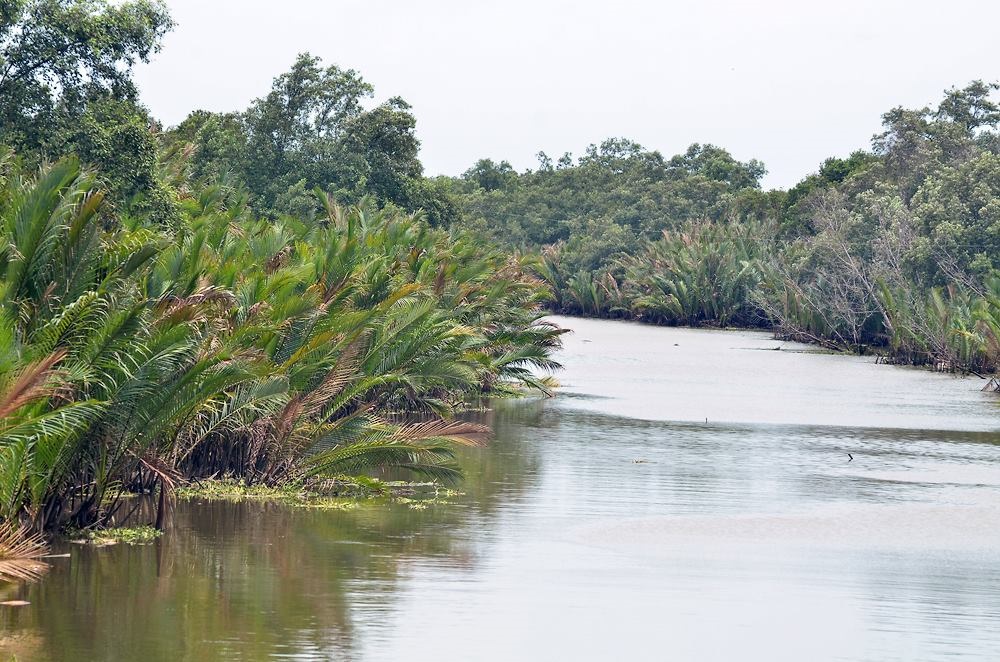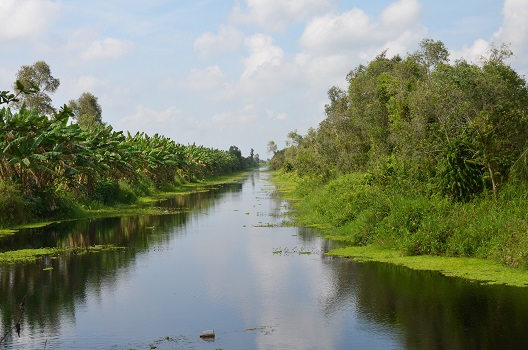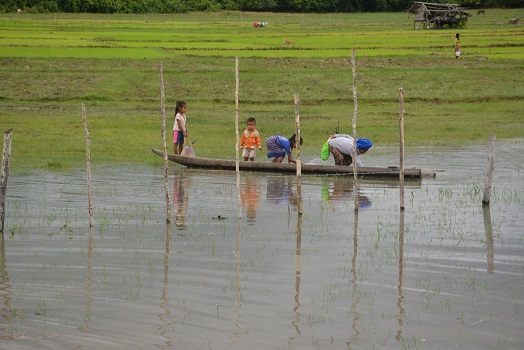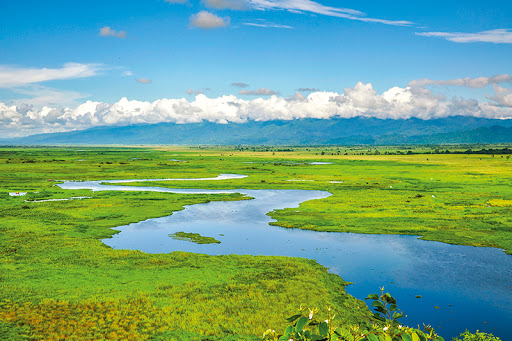Strengthening partnerships for wetlands conservation in Indo-Burma, three Ramsar Regional Initiatives sign Memoranda of Understanding
On 31 July 2020, the Indo-Burma Ramsar Regional Initiative (IBRRI) signed a Memorandum of Understanding (MoU) with Ramsar Regional Center - East Asia (RRC-EA). The signing of an MoU between IBRRI and the East Asian-Australasian Flyway Partnership (EAAFP) followed on 25 September 2020. The agreements formalise plans for the three Ramsar Regional Initiatives (RRIs) to work closely to support the governments of Cambodia, Lao PDR, Myanmar, Thailand, and Viet Nam in achieving their wetlands conservation goals.
Acknowledging RRC-EA’s experience in communication, capacity building, education, participation, and awareness-raising (CEPA) for wetlands, the agreement with IBRRI focuses on optimising communications, particularly on the development of National CEPA Action Plans in the five IBRRI countries. Awareness-raising is an essential component of effective wetlands conservation and is often overlooked in national conservation planning. Developing strategic national plans for communication on wetlands will bolster the development and enforcement of effective conservation policy.
"The Ramsar Regional Center - East Asia, is proud to have been working with the Indo-Burma Ramsar Regional Initiative for the past four years. The signing of the MOU formalises an existing partnership that will further strengthen cooperation on wetland conservation in the Indo-Burma region. The RRC-EA will remain committed to contributing to the mission of the IBRRI Secretariat for the benefit of common Member Countries, specifically, Cambodia, Lao PDR, Myanmar, Thailand, and Viet Nam," said Mr. Suh Seung Oh, Executive Director, Ramsar Regional Center- East Asia.
IBRRI also signed an MOU with EAAFP, aiming to support the designation and management of Flyway Network Sites (FNS) in the region. EAAFP works with 39 Partners including government, intergovernmental organizations, international non-governmental organizations, and private company as well as a wide range of stakeholders throughout the East Asian Australasian Flyway to conserve migratory waterbirds and their habitats, which often include Ramsar sites. The two RRIs will work together to support national governments in designating new FNS and Ramsar sites to provide a sustainably managed network of important wetlands that support biodiversity.
Doug Watkins, Chief Executive of the EAAFP Secretariat said, “At the IBBRI Meeting in early 2020 in Cambodia, I found tremendous enthusiasm and engagement of participants. It is so powerful when government officers can see that they face similar challenges, but are all able to contribute to delivering stronger outcomes for migratory waterbirds and their habitats across the region. The EAAFP Secretariat looks forward to collaborating with IBBRI, to have new nominations to the EAA Flyway Site Network and to support capacity building to maintain these sites for waterbirds and the local people that depend on the ecosystem services that wetlands provide.”
The three RRIs have previously organised various events and co-hosted meetings on wetlands conservation, such as the Regional Dialogue on Wetlands Policies in the Lower Mekong Region, hosted by IBRRI and RRC-EA. The MoUs provide further opportunities to build these partnerships, potentially applying for grants and funding for project implementation.
“The jurisdictions of the three Ramsar Regional Initiatives overlap in the five Indo-Burma countries. This provides a unique opportunity for the parties to coordinate our actions to maximise the conservation benefits for wetlands. By providing technical and financial support to national governments, we all hope to achieve our shared goals of strengthening wetlands and biodiversity conservation in the region,” concluded Raphael Glemet, Indo-Burma Ramsar Regional Initiative Secretariat.
About Indo-Burma Ramsar Regional Initiative (IBRRI)
The Indo-Burma Ramsar Regional Initiative (IBRRI) was jointly developed by the Ramsar National Focal Points of the five countries (Cambodia, Lao PDR, Myanmar, Thailand, and Viet Nam), and IUCN’s Asia Regional Office, based on specific needs identified in these countries. It was endorsed by the 52nd meeting of the Ramsar Convention Standing Committee in June 2016. The IBRRI aims to support the coordinated implementation of the objectives of the Strategic Plan of the Ramsar Convention. IUCN acts as the Secretariat for the Initiative under the leadership of the Steering Committee, which includes representatives from the five governments and the Ramsar Convention Secretariat as an observer.








